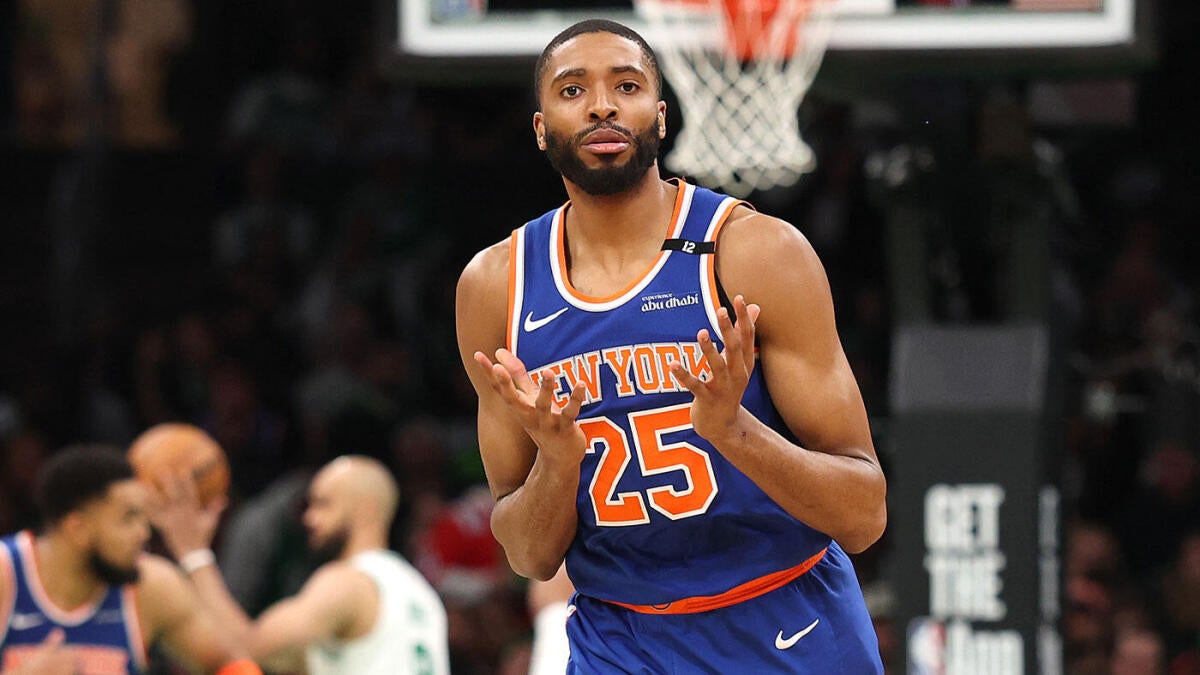Mikal Bridges has signed a four-year contract extension worth $150 million with the New York Knicks. This agreement, reported by ESPN on Thursday, had been in development for over a year following the Knicks’ major offseason trade acquisition from the Brooklyn Nets. Right after bringing Bridges on board, the Knicks also secured a long-term extension with their key point guard, Jaylen Brunson, and it was expected that Bridges would follow suit.
With Bridges committed to the team, all five starting players from last season will remain with the Knicks for at least the next two years, with an option for an additional year. This continuity comes as the team advances to the Eastern Conference Finals for the first time in 25 years. While the financial commitment is significant, both Bridges and the Knicks made strategic compromises to finalize the deal. So, what does this extension mean for New York in both the short and long term?
The Knicks have been very careful in managing their salary cap, avoiding the second salary cap apron for two straight seasons. However, there was always the possibility of hitting this financial threshold in the 2026-27 and 2027-28 seasons. Depending on draft picks and player options like Guerschon Yabusele’s, the Knicks were expected to have between $45 million and $55 million to work with under the apron. Bridges’ new salary, if at the highest level, would cost about $33.5 million in the 2026-27 season. The Knicks currently have only nine players signed, and if Mitchell Robinson re-signs, they would surpass the second apron restrictions. This was part of a deliberate plan to maintain flexibility.
Knicks’ management appears ready to potentially fall below the second apron again after possibly winning a championship, allowing the team to reset their roster after key contracts, like Karl-Anthony Towns’, expire. The structure of Bridges’ contract aligns with this long-term strategy, keeping options open in case Robinson’s health is an issue or if roster adjustments are needed.
Financially, Bridges’ deal is slightly below what would be the maximum possible amount under current rules, providing a discount beneficial to the Knicks. The deal also offers the team trade flexibility, as Bridges signed before a trade-restriction clause would have taken effect. This flexibility is important, especially given the Knicks’ rumored interest in acquiring star player Giannis Antetokounmpo.
Bridges also made concessions, such as agreeing to a trade kicker that gives him a bonus if traded, and accepting a player option for the 2029-30 season, which is not common for the Knicks. This option gives Bridges the chance to seek another big contract if still performing well in his early 30s. Jaylen Brunson and other players have similar options, reflecting a new approach by the Knicks in contract negotiations.
Overall, both Bridges and the Knicks made significant compromises to reach this agreement, which reflects a practical middle ground given Bridges’ fluctuating performance and the team’s financial strategy. This deal solidifies a core group of players as the Knicks look to stay competitive in the coming years.
Fan Take: This extension is a crucial step for the Knicks as they aim to build a championship-contending team with stability and flexibility. For basketball fans, it signals a smart balance between investing in talent and managing salary caps, which could set a blueprint for team building in the salary cap era.



